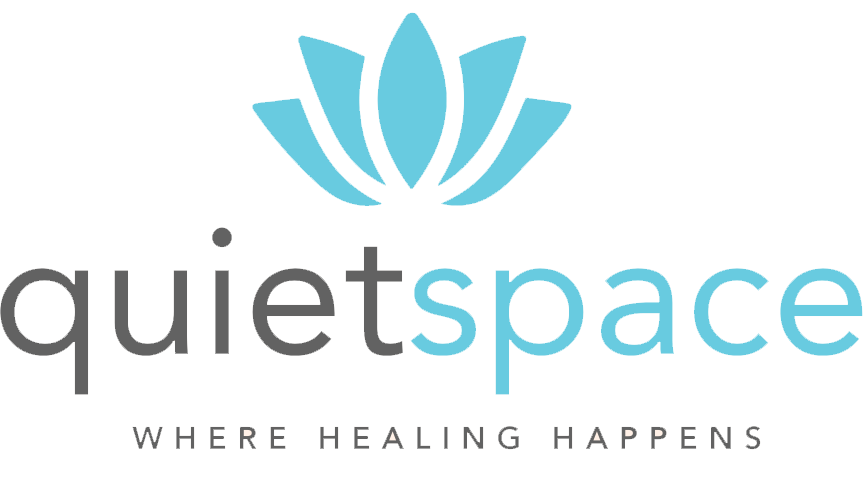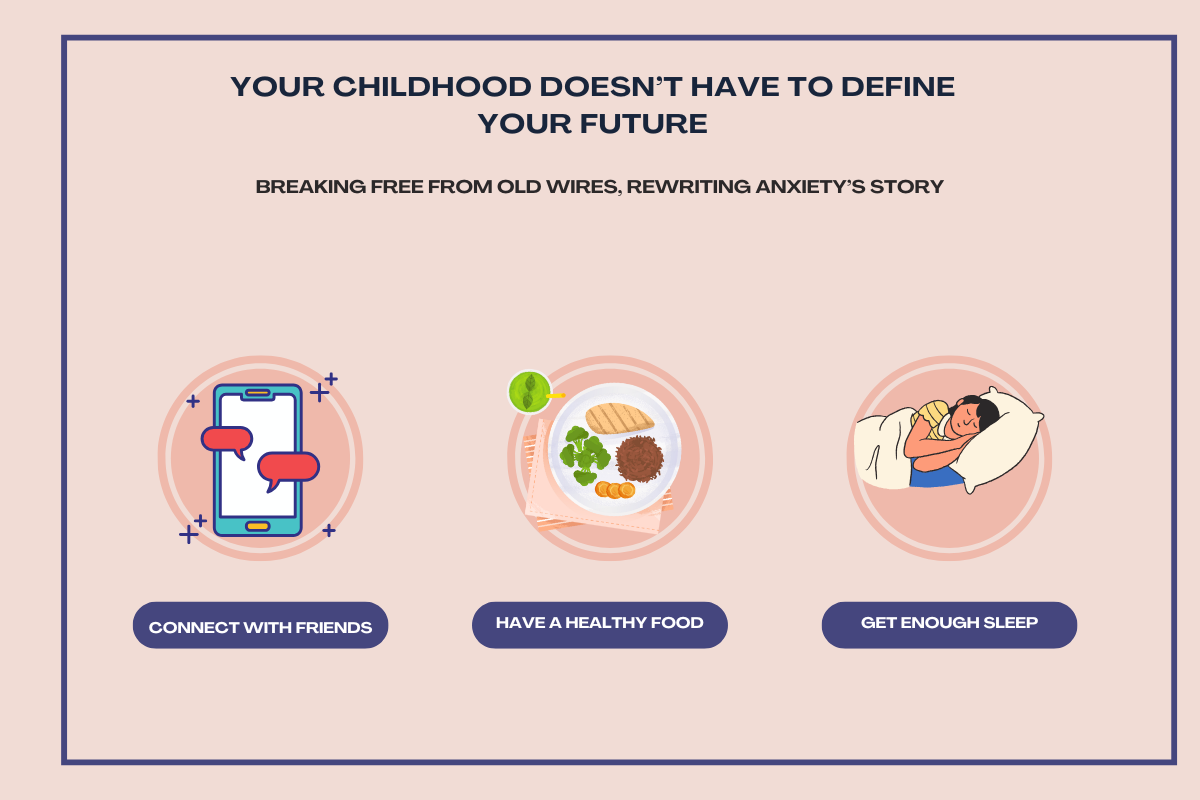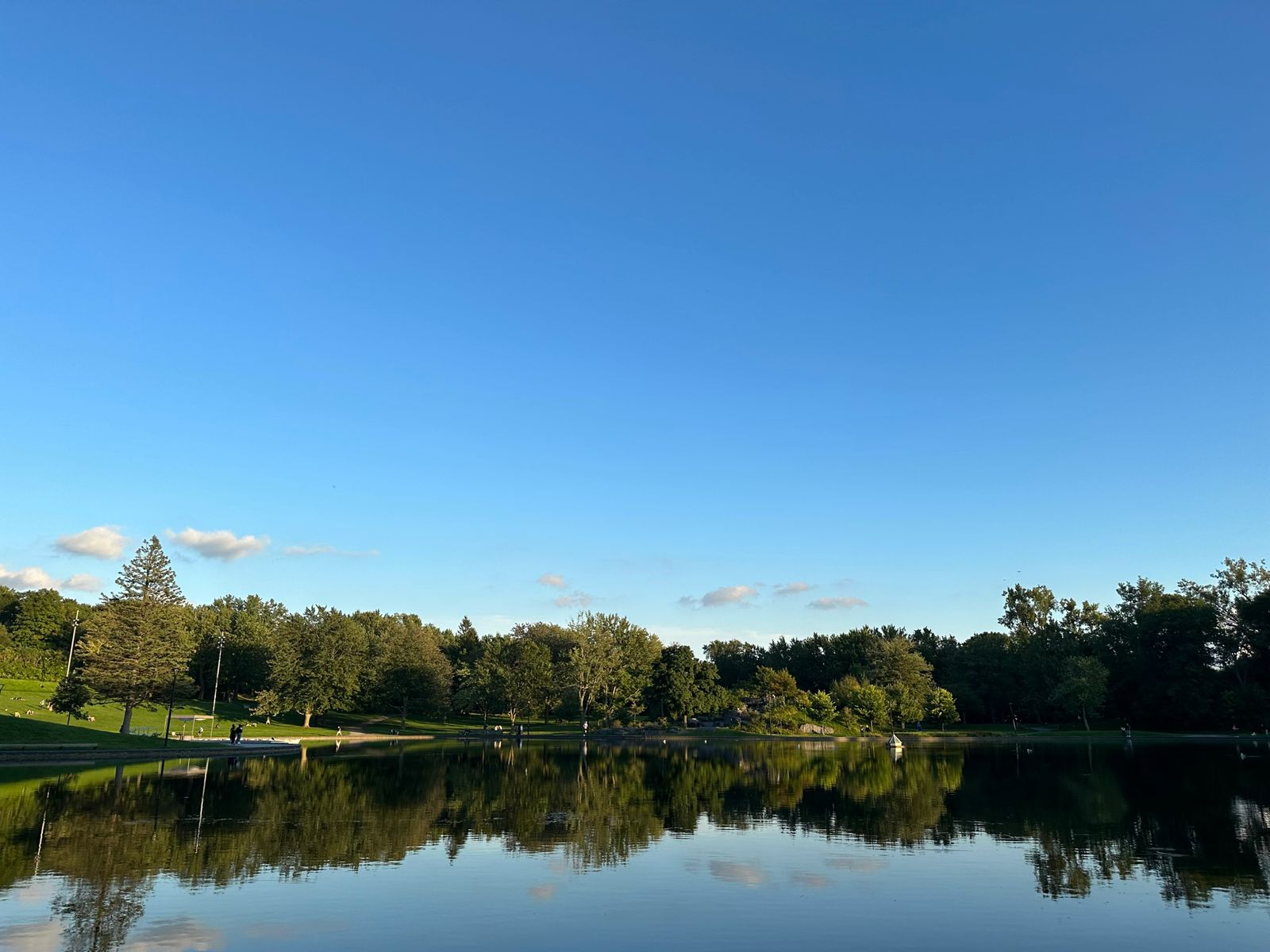Why Your Childhood Might Be Fueling Your Anxiety Today (And How to Heal)
- 26 Apr 2025
Anxiety can feel like a storm that you didn’t see coming — with racing thoughts, a pounding heart, and a sense that something is going to go wrong. But what if this storm is not random? What if it’s intricately tied to experiences you had decades ago, buried in the quiet mulch of your childhood? How we learned to navigate the world as we grew up — how we coped with fear, sadness, or uncertainty — directly influences how we manage stress as adults.
Let’s explore how your past influences your present anxiety and, most importantly, how to heal those old wounds.
Your Childhood Wired Your Brain for Survival
As children, our brains are sponges absorbing lessons about safety, love and value from our environment. If you were raised in a family that dismissed feelings (“Stop crying—it’s not such a big deal!”) or where chaos was the norm (yelling, unpredictability), your brain likely formed survival strategies. A child chided for making mistakes, for instance, might grow into an adult terrified of getting it wrong; someone required to “parent” their own parent might feel responsible for everyone’s feelings. These patterns aren’t just flaws but adaptations. But today, they might misfire, like a smoke alarm blaring at burnt toast.
How Childhood Shows Up in Adult Anxiety
Your body and mind hold the echoes of history. Here’s how to spot them:
· Irrational triggers: You may spiral if criticism, silence or conflict reminds you of childhood dynamics.
· Physical responses: Anxiety is more than mental. A racing heart, a tight jaw or numbness could be your body recalling old stress.
· Criticism of the self: Messages such as “You’re too much” or “You’ll never be enough” often repeat messages from caregivers or other peers.
Healing the Past: A Compassionate Roadmap
Anxiety rooted in childhood isn’t a life sentence. With intention and kindness, you can rewrite old patterns and reclaim peace. Here’s how to start:
1. Reconnect With Your Body
The symptoms of anxiety are not limited to the mind. When stress is upon you, stop and notice where the tightness lies: jaw clenched, chest tight, breath shallow. Put your hand there and take three deep breaths. Whisper, “We’re safe now.” This very act interrupts the cycle of panic and, in doing so, teaches your nervous system that in making these statements, a previous threat is not one presently felt. Eventually, your body learns that danger is not hiding around every corner.
2. Rewrite the Stories You Inherited
Statements like “You’re too much” or “Don’t be selfish” are not truths; they are survival codes from childhood. Challenge them:
· Identify: Jot down one belief that drives your anxiety (e.g., “I must be perfect to be loved”).
· Question: Ask, “Who taught me this? Does it still protect me?”
· Reframe: Try on a substitute belief: “I am worthy, even when I’m imperfect.” Say it every day — at your coffee station, at the ceiling at 3 a.m. — until it soothes the old script.
3. Reparent Your Inner Child
Picture your younger self in a time when they felt afraid or were not listened to. What did they need? Perhaps a hug or validation, or permission to cry. Now, give that to yourself:
· If you start to feel guilty about resting, say: “Rest is not a reward — it’s a right.”
· When shame rears up in its wake: “You’re human, not broken.” Small things, like making your favourite childhood snack or dancing to a silly song, re-establish trust in your worth.
4. Set Boundaries Without Guilt
If you learned as a child to minimise your needs, the idea of prioritising yourself will feel strange. Start tiny:
· Say, “No, I can’t take that on” to a trying request.
· Request space: “I need an hour by myself to recharge.” This isn’t selfish, but this is how you tell your brain: “I matter.” Boundaries preserve your energy and undo old beliefs about your value.
5. Lean on Community
Healing solo is scaling a mountain blind. Find people who understand:
· A therapist who specialises in childhood trauma (modalities such as EMDR or IFS gently unpacks the past)
· Support groups (online forums like r/CPTSD) in which “Me too” stands in for judgment.
· A friend who hears you, without immediately trying to fix you.
The Takeaway
Healing is not about being perfect. Some days, old patterns will resurface — and that’s OK. Rejoice in the little victories: a trigger that doesn’t shut you down, a moment of self-love rather than self-loathing. This is evidence that you’re reauthoring the tale. Your childhood planted seeds, but now you choose what grows. With time, you can cultivate a life within yourself where anxiety isn’t the dominant character — just a cloud, passing through the expanse of a far bigger sky.





Comments